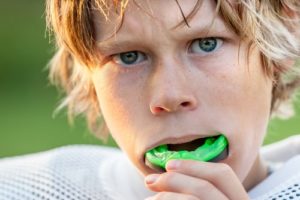What Are Pacifier Teeth?

Whether you call it a binky, a pacy, or a pacifier, they can come in handy when you have a fussy and relentless child. That binky can help your little one self-soothe, but when your child uses them for an extended time, it can lead to an issue known as pacifier teeth.
So what happens when a child has pacifier teeth? Should you toss the pacifier now? Is it preventable?
You undoubtedly have plenty of questions, and thankfully Hamilton County Pediatric Dentistry has the answers to address any concerns.
Teeth and mouth problems
Prolonged pacifier use can potentially lead to various issues with a child’s oral health and development.
For instance, frequent and prolonged pacifier use can potentially contribute to the development of crooked teeth or malocclusion (when the teeth aren’t aligned properly). These are what dental practitioners refer to as pacifier teeth.
The pressure exerted by the pacifier on the developing teeth and jaws can also result in an open bite (where the front teeth don’t touch when the back teeth are closed).
It may cause an overbite (where the upper front teeth significantly overlap the lower teeth) or a crossbite (when the upper and lower teeth don’t align properly).
Besides a pacifier’s impact on the teeth, extended or excessive binky use can hinder the child’s development of speech and language skills. It can affect the proper formation of sounds and lead to articulation difficulties, such as lisping or difficulty pronouncing certain words.
Extended pacifier use can weaken the muscles in the lips, tongue, and cheeks, as the pacifier may take over some of the functions these muscles should perform. This can potentially impact swallowing patterns and overall oral muscle coordination.
Factors that affect the onset
We want to note that not all children will experience issues with their teeth or other oral problems. The effects can vary depending on duration, intensity, and frequency of use. With that said, some children will have no significant issues, even with risk factors.
Duration
In some cases, the duration of pacifier use can affect whether a child will develop pacifier teeth. For example, if a child continues to use a pacifier beyond the age when teeth start erupting — typically around six months — it can interfere with the natural alignment of the teeth.
Intensity
The intensity of the sucking will also play a role. For instance, sucking with excessive force on a pacifier can affect the position of the teeth and the shape of the palate (roof of the mouth).
Frequency
How often your little one uses a binky will also contribute to potential issues. Constant and prolonged pacifier use, especially during waking hours, may increase the risk of dental problems.
You can minimize or prevent your child’s chances of developing pacifier teeth if you wean them from a pacifier at an appropriate time, typically by the age of two to four years of age.
Tips for weaning a child from a pacifier
The saying isn’t “It’s like taking a binky from a baby” for no reason. To make it easier, try to limit pacifier use to infancy. Encourage your child to gradually stop using a pacifier six to twelve months before teeth begin to erupt.
You could also encourage other self-soothing techniques, such as introducing alternative soothing methods, like soft toys, blankets, or comforting gestures, to help them transition from pacifier dependence.
We recommend you bring your child for regular dental checkups because we can monitor your child’s dental development and address any concerns at these appointments.
Hamilton County Pediatric Dentistry is available throughout each step of your child’s oral growth and development, guiding them along the way. That’s why we encourage you to bring your child into our office early to help establish good habits early.
- Call us at: 317-846-5893
We’re conveniently located in Carmel, IN, but gladly will accept patients from the nearby areas of Westfield, Lawrence, Fishers, Speedway, Noblesville, Indianapolis, and Zionsville.


